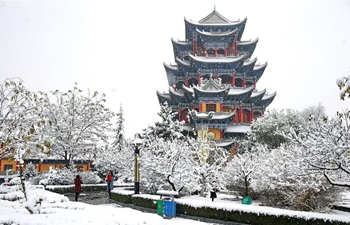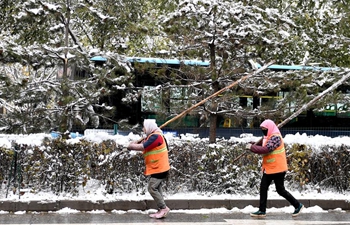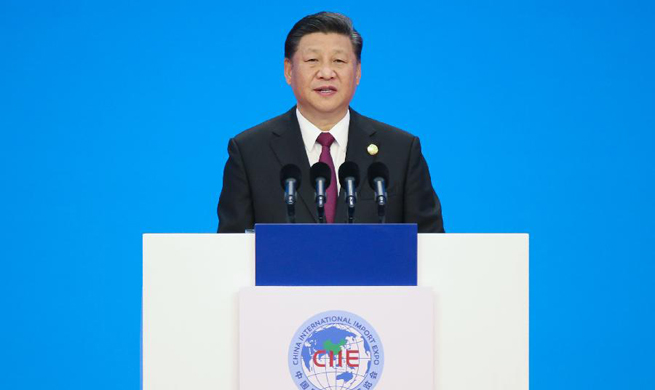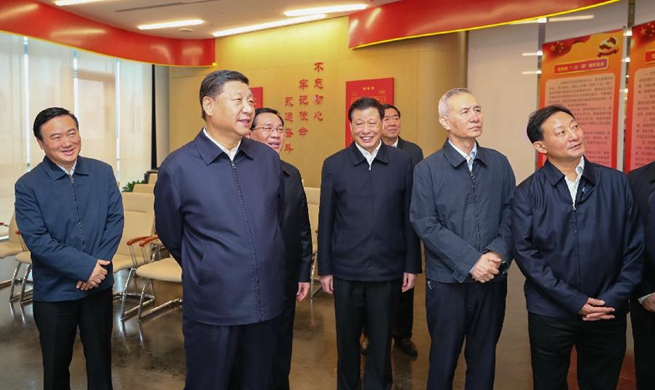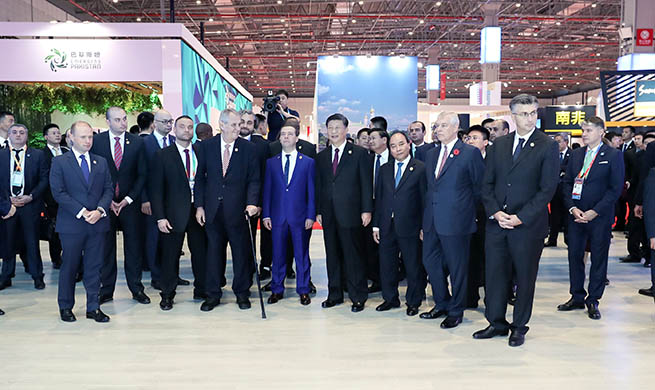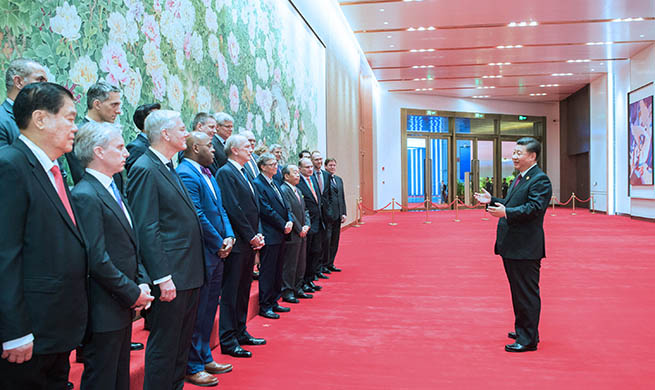ANKARA, Nov. 6 (Xinhua) -- The rare waiver granted by the United States to Turkey regarding its sanctions on Iran is a shot in the arm for Ankara's slowing economy and gives a push for the improving Turkish-U.S. relations, said local experts.
"We can consider this exemption as a success for Turkey because it is the result of the insistence of the government to explain to the U.S. side what it wanted, and that Turkey would be adversely affected by the U.S. sanctions," said Togrul Ismayil, a professor of international relations from Kahramanmaras University.
As a large buyer of the Iranian oil, Turkey has in recently years limited its energy imports from Tehran in order to reduce its dependence on the neighboring country, said Ismayil.
However, in addition to oil, Turkey also imports a significant amount of gas from Iran and does business with Central Asia through the Islamic republic.
"The United States can make decisions as a sovereign country but when these decisions have a deep impact on our country and its economy, we cannot accept them and we have strongly conveyed this message to the U.S. side," a Turkish official source told Xinhua on condition of anonymity.
"Turkey does not want to disrupt the regional stability. We have important gas and oil agreements with Iran and we do not intend to break them," the Turkish source said.
Turkish President Recep Tayyip Erdogan has maintained anti-Western rhetoric since the failed coup in 2016, while orchestrating a skillful rapprochement with Russia and Iran, mainly over the Syrian conflict, which has raised eyebrows among its NATO partners.
Turkish Trade Minister Ruhsar Pekcan said at the weekend that oil and gas contracts signed with Tehran requires Turkey to pay even if it does not get the energy.
"We have to continue to trade with our neighbors and more so with Iran because of the clauses of our energy deal. We are in a situation where we cannot forgo our energy imports from Iran," she was quoted as saying by state-run Anadolu News Agency.
Struggling with rising inflation, double-digit unemployment rate and a deteriorating economic outlook for 2019, Turkey's economy cannot take new shocks.
The Turkish economy is currently in difficult conditions after a currency turmoil this summer, which was sparked partly by a row with Washington over Turkey's detention of an American pastor suspected of espionage.
But the convicted U.S. pastor Andrew Brunson was released in mid-October, ending a bitter crisis between the two allies.
On Friday, the United States and Turkey simultaneously lifted mutual sanctions on each other's ministers, a concrete move toward normalization of bilateral ties.
In his previous phone conversation with Trump, Erdogan reportedly described the talks as "the best conversation" they have had since after the two countries were bitterly divided over a wide range of issues including the Syrian war.
The re-imposition of sanctions on Iran would have been another acrid friction between the two NATO allies as Turkey's trade with its neighbor is on the rise driven by geographical proximity and stable transport routes.
Ankara previously stated that it would not follow its NATO partner's controversial steps to re-impose sanctions on Tehran.
Nonetheless, experts argued that Turkey and the United States need each other despite the fact that there is still quite a way for them to restore the "strategic partnership."
"It would have been incomprehensible that the United States loses a valuable ally such as Turkey over the case of a pastor. The two countries' relations are too precious to be sacrificed over the plight of just one person," Ismayil concluded.





